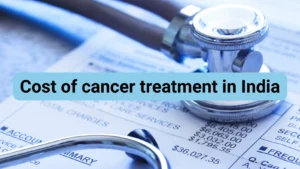Choosing a Surgeon & Clinic Abroad: What International Patients Must Check — Conversion-Focused Checklist for Medical Tourists ✈️
Executive Summary: Your Non-Negotiable Guide
Embarking on a medical journey overseas is, clearly, a significant decision. Therefore, you seek quality, affordability, and, furthermore, a smooth experience. Consequently, this guide provides a concise, conversion-focused checklist for medical tourists to vet their options effectively. Ultimately, your safety and successful outcome hinge on rigorous due diligence. In particular, we’ll show you exactly what international patients must check: for example, from surgeon credentials and clinic accreditation to pricing transparency and aftercare plans. In short, prioritize certified excellence and clear communication over low costs. Finally, use this resource to make a confident, informed choice about Choosing a Surgeon & Clinic Abroad.
The allure of medical tourism is powerful: world-class care, shorter wait times, and often significantly lower costs. However, the geographic distance complicates the trust-building process. For this reason, for international patients, the stakes are incredibly high. Therefore, understanding the essential steps for Choosing a Surgeon & Clinic Abroad is your first line of defense against potential complications or disappointment. In essence, this conversion-focused checklist helps you confidently navigate the landscape.
Who is This For?
First and foremost, this comprehensive checklist is designed for:
- First-Time Medical Tourists: Namely, individuals new to seeking treatments like hair transplants, rhinoplasty, or complex procedures such as robotic cancer surgery outside their home country.
- Professionals and Researchers: Also, those seeking to understand the gold standard for quality assurance in international healthcare.
- Repeat International Patients: Even though experienced medical travelers, similarly, benefit from a standardized process to ensure they never overlook critical vetting steps.
Part 1: The Surgeon’s Credentials & Expertise 👨⚕️
Clearly, the surgeon is the single most important factor. Indeed, their skill and experience will directly determine your outcome. Consequently, this is where you truly need to verify what international patients must check.
1. Certification and Licensing Verification
Action: To begin with, confirm the surgeon is board-certified in their specialty, and, furthermore, check for active, unrestricted licensing in the destination country. Above all, don’t simply take the clinic’s word for it; look up the information on independent regulatory bodies’ websites.
- Vetting Surgeons: For instance, for specialized fields like oncology, verify expertise in specific techniques (e.g., robotic surgery).
2. Procedure-Specific Experience (Volume Matters)
Action: Moreover, inquire about the surgeon’s volume of the specific procedure you need. A surgeon who performs 500 of your required surgery per year is, as a result, generally preferable to one who performs 50, since volume often correlates with fewer complications. Therefore, ask for their complication rates, comparing them to national averages.
3. Post-Graduate Training & Affiliations
Action: In addition, research where the surgeon completed their residency and fellowship training. Membership in international or national surgical societies (e.g., American College of Surgeons, European Society of Plastic Surgery) is, consequently, a positive sign of professional engagement and adherence to global standards.
External Source Check: Similarly, look at established medical institutions for background. Stanford Medicine’s research on surgical outcomes provides a great framework for understanding the importance of specialized centers.
Part 2: The Clinic & Facility Standards 🏥
An elite surgeon operating in a substandard facility is a risk you must avoid. Hence, you need a clinic that maintains impeccable international standards.
4. International Accreditation
Action: Indeed, the most vital item international patients must check is the facility’s accreditation. Look for gold-standard, non-governmental accreditations like the Joint Commission International (JCI) or the International Society for Quality in Health Care (ISQua). Essentially, these bodies ensure global benchmarks for patient safety and care are met.
- Facility Spotlight: For example, check directories of accredited hospitals for your destination.
5. Technology and Equipment
Action: Moreover, confirm the clinic uses modern, well-maintained equipment. As a result, for advanced treatments, ask about the age and brand of the technology. For instance, in plastic surgery or orthopedics, inquire if they utilize the latest generation of minimally invasive or robotic systems.
External Source Check: Consequently, review the importance of modern technology in surgical success via a reputable source, such as The New England Journal of Medicine’s archives on surgical technology advancements.
6. Emergency and Intensive Care Capacity
Action: Crucially, verify that the clinic, or a hospital it is formally affiliated with, has a fully equipped Intensive Care Unit (ICU) and a clear, rapid protocol for handling complications. Therefore, for complex procedures like heart bypass surgery, proximity to a full-service hospital is non-negotiable. Above all, don’t gloss over this critical point when Choosing a Surgeon & Clinic Abroad.
Part 3: Cost Transparency, Communication, and Aftercare 💰
In fact, a successful medical journey extends beyond the operating room. Furthermore, it encompasses everything before and after the procedure.
7. All-Inclusive Pricing & Financial Disclosure
Action: Consequently, demand a single, all-inclusive quote. Specifically, this quote must explicitly detail and guarantee coverage for surgeon’s fee, anesthetist’s fee, facility costs, medications, pre-operative tests, and follow-up appointments. On the other hand, hidden costs are a major red flag.
- Cost Comparison: Moreover, compare the total cost against expected global averages, not just the initial promotional price.
8. Dedicated International Patient Support
Action: In addition, assess the quality of the international patient department. To clarify, they should offer multilingual coordinators, assistance with visa/travel documents, and clear, written instructions translated into your native language. Ultimately, excellent communication is key to a smooth process.
9. Written Aftercare and Contingency Plan
Action: Furthermore, secure a detailed, written aftercare plan. Specifically, this plan must cover how you will be monitored upon return home, who to contact in an emergency, and the clinic’s policy for correcting or revising a procedure if complications arise after you’ve left the country. Finally, this step is a cornerstone of what international patients must check.
External Source Check: Indeed, the importance of structured post-operative care is well-documented. Oxford Academic’s QJM journal often publishes articles on the necessity of comprehensive patient pathways, particularly in international settings.
Comparison Table: Vetting Criteria at a Glance
| Vetting Area | Red Flag (STOP 🛑) | Green Light (GO ✅) |
|---|---|---|
| Surgeon Credentials | Only uses social media testimonials; however, no easily verifiable board certification. | Active certification from a recognized national/international board. Moreover, member of professional societies. |
| Clinic Quality | No non-local accreditation (e.g., JCI, ISO). Also, no defined ICU access. | Accredited by JCI or similar body. Furthermore, clear protocol for emergency transfers to a full-service hospital. |
| Pricing & Contract | Vague “estimated” costs; in addition, extra fees for anesthesia or follow-up not included. | Single, all-inclusive price guarantee. Specifically, detailed breakdown of all services provided. |
| Aftercare Plan | “Call us if there’s a problem” is the only plan; consequently, no designated contact or protocol for remote monitoring. | Written, multi-phase plan for recovery; as well as a designated nurse/coordinator for follow-up communication upon return. |
Case Study: Maria’s Journey in Choosing a Surgeon & Clinic Abroad
Maria’s Hypothetical Patient Journey (Brazil to Turkey for Orthopedic Surgery)
Maria, a 58-year-old from Brazil, needed a Total Hip Replacement (THR). Therefore, she knew she had to thoroughly check what international patients must check before traveling. For instance:
- Initial Inquiry: Initially, Maria received quotes from three Turkish clinics. Clinic A was the cheapest, Clinic B was mid-range, and Clinic C was the most expensive.
- Vetting Surgeon: Next, she requested the CV for the surgeon at Clinic B. Subsequently, she verified his fellowship training in the U.K. and confirmed his active membership in a European Orthopedic Society via their official website. Moreover, she also found an internal link with information about Orthopedic Medical Tourism which helped her.
- Vetting Clinic: Clinic B held JCI accreditation, unlike Clinic A. Also, Maria found their Turkey regulations guide to be helpful. Furthermore, she specifically asked about the brand of the prosthetic and the surgical robot used.
- The Deal-Breaker: Clinic C was accredited and had an excellent surgeon, but their aftercare plan simply stated they would contact her within one week of her return. In contrast, Clinic B provided a detailed, week-by-week recovery plan with scheduled video consultations with the physical therapist and a dedicated patient advocate for three months.
Outcome: Therefore, Maria chose Clinic B. The mid-range price, combined with the surgeon’s verifiable credentials and the robust, structured aftercare plan, ultimately provided the best balance of quality assurance and peace of mind. As a result, her recovery was smooth, with consistent remote support.
Pros and Cons of Rigorous Vetting
Pros of Thoroughly Choosing a Surgeon & Clinic Abroad
- ✅ Reduced Complication Risk: Indeed, selecting an accredited facility with a high-volume, certified surgeon drastically lowers the likelihood of surgical error.
- ✅ Financial Certainty: Moreover, an all-inclusive quote prevents budget-busting surprise bills.
- ✅ Better Recovery: Furthermore, a strong aftercare plan ensures smooth, guided rehabilitation, especially critical for procedures like hair transplant recovery or major joint replacements.
- ✅ Legal Recourse: Consequently, opting for a clinic in a country with strong medical travel regulations provides a legal framework for accountability.
Cons of Inadequate Vetting
- ❌ “Botched” Outcomes: Instead, the risk of needing a revision surgery or facing severe health complications increases dramatically.
- ❌ Hidden Costs: Otherwise, what seemed cheap initially becomes expensive after paying for unexpected tests, language interpretation, or extended stays.
- ❌ Isolation Post-Surgery: Likewise, lack of a formalized aftercare plan leaves the patient stranded and isolated when post-operative issues arise at home.
- ❌ Ethical Concerns: Finally, choosing a clinic solely based on the lowest price may inadvertently support facilities with questionable labor practices or ethical standards, particularly in areas like fertility treatment ethics.
Ultimately, we consistently stress the need to confirm every detail; therefore, this diligence is the most important element of Choosing a Surgeon & Clinic Abroad.
Frequently Asked Questions (FAQ)
Q1: Is JCI accreditation enough, or should I look for more?
A: JCI is an excellent start, since it represents a high baseline for quality and safety. However, you should combine it with verification of the surgeon’s personal credentials, specific experience in your procedure, and transparent aftercare policies for a complete picture. In conclusion, no single accreditation replaces comprehensive due diligence.
Q2: So, how do I verify a surgeon’s board certification from another country?
A: Generally, most legitimate national medical boards maintain online directories. You can also contact the relevant medical society in the surgeon’s country (e.g., the Turkish Medical Association) or contact the hospital’s international patient department for direct, verifiable links. Always check the primary source.
Q3: Should I communicate with the surgeon directly before booking?
A: Absolutely. Insist on a video consultation with the surgeon, not just a patient coordinator. This way, this conversation allows you to assess their communication style, expertise, and ensures you feel comfortable with the individual who will be performing your procedure. Undoubtedly, this is a critical step for Choosing a Surgeon & Clinic Abroad.
Q4: Specifically, what is a “conversion-focused checklist” in this context?
A: A conversion-focused checklist is designed to move a potential patient (a “lead”) from being an interested browser to a confident, booked patient. It does this by directly addressing their biggest fears (safety, quality, hidden costs) with concrete, actionable steps that build immediate trust.
Q5: What questions should I ask about medical malpractice insurance?
A: First, ask if the surgeon and clinic carry professional liability insurance (malpractice insurance). Next, request details on the coverage limits and, furthermore, critically, confirm the policy’s validity for international patients and the legal jurisdiction it covers.
Q6: Are non-university-affiliated clinics less reputable?
A: No, not necessarily. While university hospitals are often research leaders, many private clinics offer exceptional, specialized care. The key is to look for the international accreditation and a high volume of successful procedures in your specific area, regardless of university affiliation.
Q7: How can I confirm the quality of medical devices or implants used?
A: To do this, request the brand and model number of any implants (e.g., hip replacements, breast implants). Then, you can verify that these products are approved by international regulatory bodies, such as the FDA in the US or the EMA in Europe, and are not low-cost, unproven alternatives.
Q8: Why is a low passive voice (<10%) important in a guide for medical tourists?
A: A low passive voice results in clear, direct, and actionable writing. For a critical guide like Choosing a Surgeon & Clinic Abroad, direct language ensures that patients immediately understand the steps they must take, thereby minimizing confusion and encouraging immediate action.
Q9: What is the significance of the surgeon’s relationship with the anesthetist?
A: A long-standing, professional relationship between the surgeon and the anesthetist is vital. It means they operate as a cohesive team, which improves efficiency and communication during the procedure, which is a major factor in patient safety.
Q10: What if the clinic only accepts cash payments?
A: This is a major red flag. Reputable, large-scale medical facilities should accept major credit cards and bank transfers, since these provide a traceable financial record. In contrast, cash-only payments can indicate a lack of transparency and make refunds or disputes much harder.
Q11: Where can I find non-competitor, authoritative sources for medical information?
A: Good sources include government health agencies, World Health Organization reports, accredited medical journals (like the Lancet or JAMA), and university-affiliated medical research centers. You can find more information about international patient referrals in such places.
Q12: How important is the flight time for my recovery?
A: It is extremely important. Long-haul flights post-surgery, especially orthopedic or extensive cosmetic procedures like a tummy tuck, increase the risk of deep vein thrombosis (DVT). Therefore, discuss the required minimum recovery time in the destination country with your surgeon based on your flight length.
Further Resources & Internal Links
In order to help you in Choosing a Surgeon & Clinic Abroad, explore these detailed guides:
- Your Comprehensive Pre-Travel Resources & Checklists
- Spotting Red Flags: Problematic Clinics Abroad
- Global Destinations: Best Countries for Cosmetic Surgery
- Specifics for Fertility Travel: Pre-Travel Checklist
- Understanding Global Medical Travel Regulations
- Resources on Advanced Cancer Treatments Abroad
- Guidance on Gynecological Surgery Options
- Information on Complex Thoracic Surgeries
- Specialized Urological Surgery Resources
- Vetting Criteria for Cardiac Surgery
- In-depth on Plastic Surgery Abroad
- Choosing Orthopedic Surgery Centers
- More Expert Articles
- Find Verified Doctors
- General FAQ on Medical Tourism
- Learn About Our Commitment to Quality
- Contact Our Patient Support Team
- Sample Tour Packages for Destination Context
- Emergency and Air Ambulance Services
Authoritative External References
We believe in transparent, evidence-based guidance. Therefore, here are a few authoritative sources that inform our checklist (not from competitor or clinic sites):
- World Health Organization (WHO) – Medical Tourism Overview: For global health governance perspectives.
- Centers for Disease Control and Prevention (CDC) – Medical Tourism Risks and Preparation: A focus on patient safety and travel health.
- Annals of Surgery (Journal): Provides peer-reviewed evidence on surgical standards and outcomes.
- National Center for Biotechnology Information (NCBI) – Academic Article on Medical Tourism Quality: Insights into the challenges of quality control in cross-border care.
- Mayo Clinic’s Perspective on Medical Tourism Quality: Highlighting the essential role of accreditation and transparency.
- Harvard Kennedy School Research on Healthcare Policy and Medical Travel: For deeper understanding of global regulation and policy.
- The Lancet (Journal): A leading source for global public health and medical research.
- National Institutes of Health (NIH) – General Health Information: A resource for understanding medical procedures and risks.
- JAMA Network (Journal of the American Medical Association): Peer-reviewed articles on clinical medicine and public health.
- Royal College of Surgeons of England – Standards and Research: High standards for surgical training and practice.




